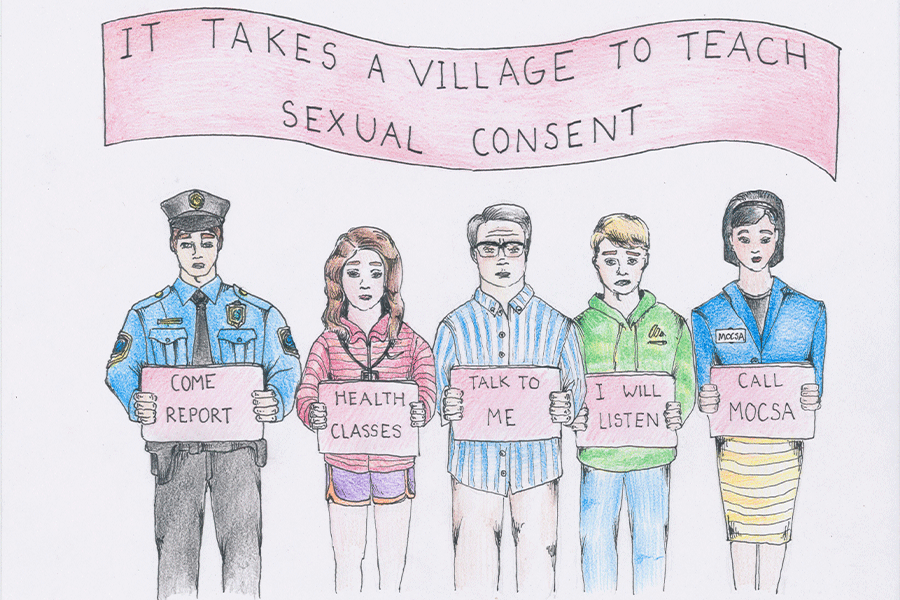Staff editorial: Emphasize consent education
Educating students on the importance of sexual consent should be reinforced in the classroom and at home
By Jason Chen
October 28, 2015
Throughout high school and college, students will likely be faced with experiences involving sexual consent, either directly or indirectly. Because of the role consent plays in health and well-being, the JagWire decided to report on sexual consent and assault as its main story for this issue. We believe students should be more educated about what consent is and its importance in sexual activity.
According to the Metropolitan Organization to Counter Sexual Assault, consent is is only present “when one person asks and the other person freely says yes.” Any sexual action done without consent is sexual assault.
To better inform students about what consent is, the school needs to further its efforts to teach it. Just as schools don’t expect students to learn concepts like math from outside sources, they shouldn’t expect students to learn about consent the same way.
As part of increasing its efforts to teach about consent, the school could incorporate consent education more into Health classes, emphasizing consent as an aspect of healthy relationships and making it a heavier tested topic. Additionally, annual assemblies, hallway and classroom posters and increased efforts from the counseling department and clubs such as jagPRIDE could make consent a repeatedly discussed topic. Incorporating MOCSA and Safehome presentations into Health and FACS classes is a step in the right direction, but the school should invite these organizations to extend their focus to all students at the school continuously. If representatives from these organizations and health teachers offered additional resources and education to juniors and seniors, it could reiterate points these students may have forgotten from Health class.
In teaching about consent, there are many things students need to know. In addition to knowing the definition of consent, students should be taught how to apply it to their lives and decisions. They should be taught how to acquire proper consent and what to do if a partner does not acquire proper consent, including how to report incidents of sexual assault. Being informed of what consent is, how to be consensual and the consequences of not following consent could prevent future cases of sexual assault.
If you have been sexually assaulted, we encourage you to report it to school resource officer Mo Loridon, social worker Debbie Gudenkauf, your counselor or a trusted school staff member. You can receive additional help by contacting the Rape, Abuse & Incest National Network at (800)-656-4673.
If you have a friend who has been sexually assaulted, you should encourage him or her to report the assault and offer support when the friend reports it. Additionally, MOCSA and Safehome should teach students about how they can help friends who have been sexually assaulted.
Not all of the responsibility to teach about consent needs to fall upon the school. Parents should supplement what students are taught in school by discussing consent at home as well, beginning when their students are in middle school and experiencing adolescence. Also, if parents make themselves more willing to talk about topics like consent, students may be more apt to report cases of sexual assault to their parents or simply ask for advice about consent. Although talking about anything sexual has potential to be an awkward conversation, it is necessary.
A student’s high school years are meant to prepare and teach him or her how to use good judgement and make decisions. If students are taught about consent, they can go into their lives with more confidence to make decisions involving it.










